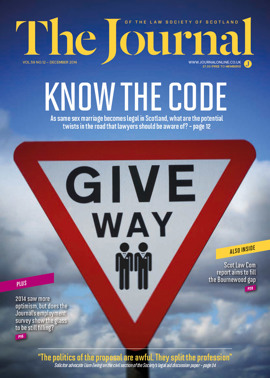New age, new image, new media, continuing problems?

In a previous article (Journal, December 2012, 27), we looked at the way sport was embracing new media and the problems that could arise, particularly for sportspeople. A recent survey highlighted by the Sport & Recreation Alliance has illustrated that younger athletes in particular have an attitude to online behaviour that may lead to further problems. Whilst the theme of the behaviour reported is naïvety, both as to the risks and the potential repercussions, this does not appear to be due to a lack of attempts to educate young athletes.
The difficulty appears to be primarily a generational disassociation. There would appear to be a misplaced confidence in the content that can be published, who can be communicated with and what can be taken to be acceptable to recipients – even though over one fifth of males surveyed, and close to two fifths of females, reported receiving unacceptable content. Perhaps most interestingly, none of the respondents indicated that they used social media to build and maintain a positive public profile. Yet their public profile is central to why clubs, associations and sport governing bodies (SGBs) regulate the use of social media by sportspeople, and act on complaints in relation to same.
It’s what you signed up to
Any set of rules and any subsequent conduct complaint taken against a sportsperson will always have a contractual basis, with the athlete typically having agreed to conduct themselves in a particular way and to abide by certain standards of behaviour by being a member of the particular club, association and/or SGB. Thankfully the issue in Scottish football, to take one sport as an example, is not as acute as in England, where the FA has had cause to investigate 121 cases since 2011, imposing £350,000 by way of fines (the highest being £90,000). The standard SPFL contract permits a fine of up to four weeks’ pay to be imposed and deducted from salary; the Judicial Panel protocol allows a wide range of sanctions to be imposed including suspensions, fines and educational orders.
Of course, in the worst cases, the matter can also attract the interest of the police, usually enquiring into a possible offence under s 127 of the Communications Act 2003 (with a possible jail sentence of up to six months and/or a fine, irrespective of any sporting sanction).
Learning the hard way
Yet those from the digital generation, who tend to see themselves as consumers and not part of the online product, appear to really learn only once they find themselves being disciplined. This presents an interesting challenge for sports clubs, associations and bodies, because typically decisions and sanctions will be kept confidential. We have seen, however, within certain sports in Scotland, instances where inappropriate online behaviours have had serious repercussions for sportspeople, including indirect consequences.
For many young athletes who supplement funding income, or generate their main source of income, through coaching, the risks of inappropriate behaviour online are even greater, given that many Scottish governing bodies require coaches to be licensed or otherwise to abide by codes of conduct particular to coaches. Obligations will ordinarily include behaving appropriately, both when coaching and when not. In the most extreme cases, coaches have been excluded from participation sine die for misconduct.
Still we see arguments based on private and family life being advanced in defence of complaints, but recent decisions in the employment tribunals, where such arguments are most usually deployed, show a hardening attitude against finding disciplinary action to be unlawful even where it is considered that there is a breach of article 8 respect for private and family life. Those rights can be interfered with when, on balance, the interests of the organisation and other rights are more worthy of respect (see, for example City and County of Swansea v Gayle UKEAT/0501/12), or the right to privacy is outweighed by the need to properly resolve a dispute, where the information ingathered is cogent and relevant (see Punjab National Bank (International) Ltd v Gosain UKEAT/0003/14). There is unlikely to be any success in defending a complaint based on privacy arguments.
Need for vigilance
As sport continues to look to actively encourage the use of new media channels to promote participation and raise its profile, continued efforts will be required to educate all sportspeople, as well as responding robustly to breaches of rules. Of course, as was seen recently in America, online mistakes are not the preserve of the younger generation within sport, nor indeed only athletes: Ted Bishop, President of the Professional Golfers Association was impeached following repeated criticism of English golfer Ian Poulter that offended equalities principles. With equalities being central to conditions of funding for SGBs and sports clubs in Scotland, a similarly resolute approach can be expected from conduct committees considering complaints about online misbehaviour.
Bruce Caldow, partner, Harper Macleod
In this issue
- Factors in the balance
- Balancing the right to decide
- Life yet in oil and gas
- Commercial awareness begins at trainee stage
- Relocation and the finances of contact
- Reading for pleasure
- Opinion: Archie Maciver
- Book reviews
- Profile
- President's column
- Up and running at last
- People on the move
- With this Act, I thee wed
- Tax: a mission to inform
- For better, for worse
- Filling the Bournewood gap
- Power talking
- For whose aid?
- Balanced view
- A laughing matter?
- Directors: how much is too much, or not enough?
- Credit where it's due?
- New age, new image, new media, continuing problems?
- Scottish Solicitors Discipline Tribunal
- Lawyers as leaders
- Property Law Committee update
- Property Standardisation Group update
- Over the finishing line – 2
- Not proven no more?
- Vulnerable clients guidance now extended to the young
- From the Brussels office
- Take it to the schools
- A future – a vision
- Ask Ash
- A strategy with legs?
- Who's got what it takes?
- I can act, but should I?
- Prominence unplanned






